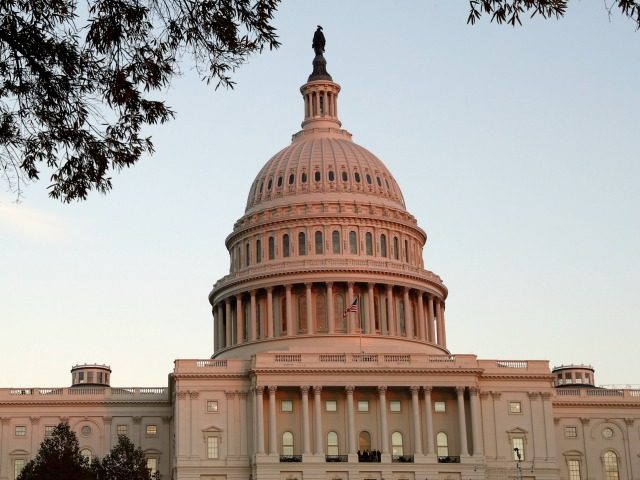Conservatives are furious about the new budget agreed by Congress over the weekend, which seems a capitulation by Republicans to Democrats on nearly every issue.
The budget funds Planned Parenthood, but not the border wall, for example. The White House listed some gains, but critics say the budget could just as easily have been signed by Hillary Clinton.
There is a simple reason Republicans lost: they were willing to accept almost any deal, and Democrats knew it.
In negotiation, there is a basic concept called the “best alternative to a negotiated agreement,” or BATNA. If any party’s BATNA is better than an agreement, there will be no deal. Likewise, if any party’s BATNA is particularly good, they will have more leverage in negotiations, because the other side knows they can walk away without too much damage. Conversely, if any party’s BATNA is very bad, they are likely to suffer. In the process of negotiating, each side may try to improve — and exaggerate — its own BATNA, while also investigating, and downplaying, the other side’s BATNA.
The Republicans came to these budget negotiations without a BATNA, or with a very bad one. They were not prepared to shut down the government under almost any circumstances. A shutdown in President Donald Trump’s first 100 days would have made him look like a weak chief executive, and might have caused lasting political damage. A shutdown would also have made the GOP-dominated Congress look reckless and incompetent. It was never going to happen.
The Democrats might also have suffered from a shutdown, but they have an institutional advantage, in that the public is conditioned to expect federal spending as the norm, and the mainstream media almost always blame the Republicans for shutdowns. So their BATNA, while bad, was better than President Trump and House Speaker Paul Ryan’s BATNA.
There are more budget negotiations coming in the fall, and Republicans will continue to “get rolled” unless they are able to change the BATNAs. There are two ways to do that.
One is to make Republicans’ BATNA better, in relative terms, by convincing them that the political price for a bad budget agreement will be far worse than for a shutdown. Conservative activists could do this by supporting those Republicans who are willing to vote against a future budget. But that will not work for moderate Republicans.
The other way is to make Democrats’ BATNA worse, by choosing one issue — or, at most, a few issues — that would embarrass Democrats to fund (or to fail to de-fund). Republicans could declare that they will refuse to support a budget that includes Planned Parenthood, for example, or President Trump could threaten to veto a budget that lacks funding for a border wall.
The problem is that there are loud segments of the Democratic base who would reward their party for standing firm on those issues, and media pressure would mount against Republicans.
There is a third alternative, which is to “starve the beast” — to give Congress less money to spend. That would make some of the non-esstential budget priorities, like Planned Parenthood, harder for Democrats to defend.
In the past, under Democratic leadership, Congress has been willing to run big deficits to keep their favorite programs running, but Republicans would probably be less so, especially under pressure from their conservative base.
That is perhaps the most credible strategy, given that Republicans can push through President Trump’s proposed tax cuts on a reconciliation vote — i.e. with a simple majority in the Senate. For the first few years, at least, lower taxes would produce lower revenues, until economic growth takes off.
That may be the only way for Republicans to win future budget battles.
Update: Just a few minutes after this article was published, President Trump defended the budget deal on Twitter, and predicted that there would be a “shutdown” of the government in September or a change in the Senate rules:
The reason for the plan negotiated between the Republicans and Democrats is that we need 60 votes in the Senate which are not there! We….
— Donald J. Trump (@realDonaldTrump) May 2, 2017
either elect more Republican Senators in 2018 or change the rules now to 51%. Our country needs a good “shutdown” in September to fix mess!
— Donald J. Trump (@realDonaldTrump) May 2, 2017
There are two messages there. One is that the president is prepared to risk a shutdown — though he has not yet made clear which priorities would cause him to veto a proposed budget. The other is that he sees the Senate filibuster as the obstacle, to be overcome either by passing the 60-vote threshold in November 2018, or by changing the Senate rules.
It seems unlikely that the Senate would opt to change the rules for ordinary legislation, so that leaves the option of electing 60 Senators. That would work — but it would also postpone the day of reckoning until 2019, which means Republicans would continue to lose in budget negotiations until then. Conservative voters are in no mood to wait.
From a negotiating standpoint, it is good for Trump to broadcast that he “needs” a shutdown. The challenge for the administration is to find the issue, or issues, on which to make that stand, and leave the tough choices for Democrats.
If a shutdown is to happen, it is more likely — and more credible — in September than later. The more often Trump is willing to spend on Planned Parenthood or the National Endowment for the Arts, the less credible later threats will be.
Joel B. Pollak is Senior Editor-at-Large at Breitbart News. He was named one of the “most influential” people in news media in 2016. He is the co-author of How Trump Won: The Inside Story of a Revolution, is available from Regnery. Follow him on Twitter at @joelpollak.

COMMENTS
Please let us know if you're having issues with commenting.